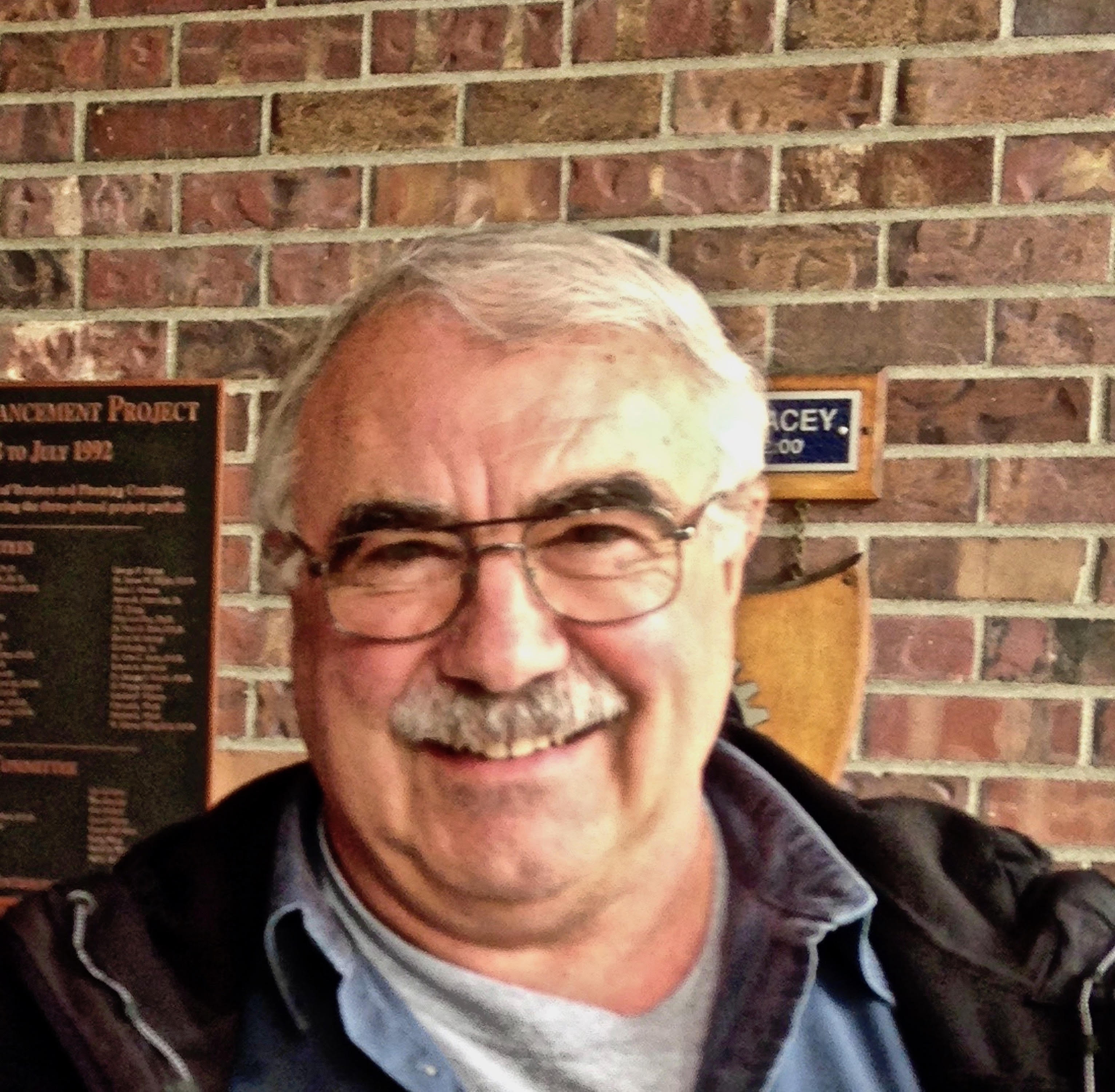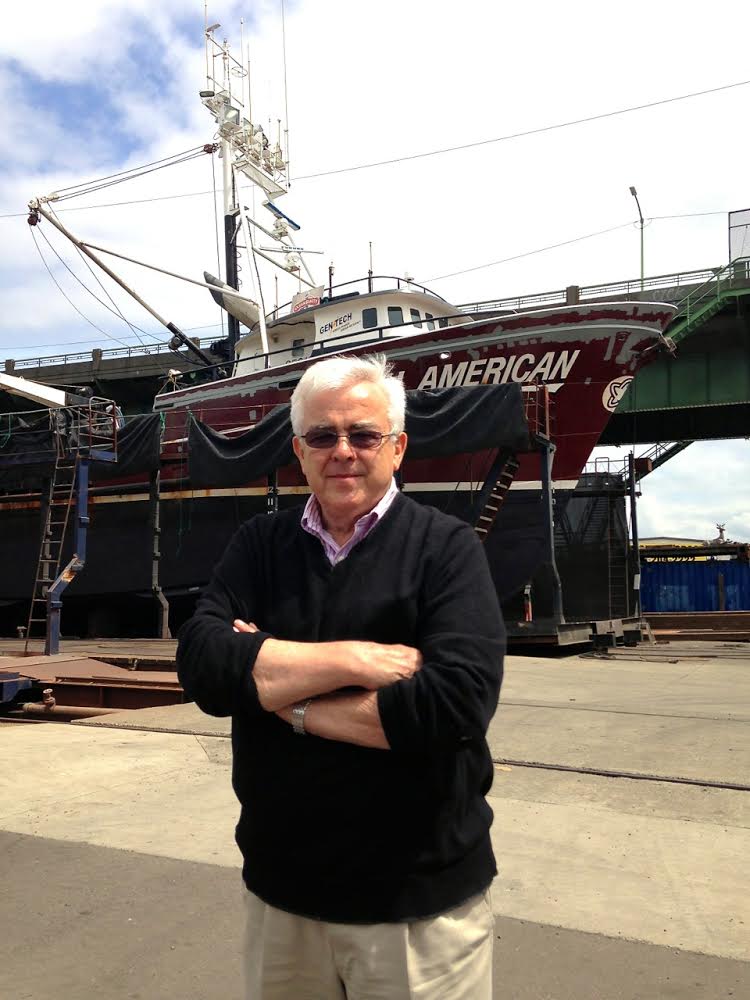By Mike Cassinelli
 Last fall I advocated steps to improve a proposed statewide initiative to cut carbon pollution—making it work better for rural, resource-dependent communities like Ilwaco. Now I’m proud to report that we got the improvements we needed. I’m supporting Initiative 1631.
Last fall I advocated steps to improve a proposed statewide initiative to cut carbon pollution—making it work better for rural, resource-dependent communities like Ilwaco. Now I’m proud to report that we got the improvements we needed. I’m supporting Initiative 1631.
As a charter fishing operator, and former mayor of Ilwaco, I know we have a lot at stake. Fishing communities like ours can’t afford to be left behind by a policy to protect healthy resources and build stronger, cleaner local economies. We need a policy that cuts pollution while keeping our fuel costs under control and growing jobs here at home. That’s what we got with Initiative 1631, contrary to the scare stories from the oil industry.
What’s at stake for us? Let’s start on the docks. Our fisheries are being eroded by ocean acidification and climate impacts: overheated waters killing salmon, toxic algae closing crab and shellfish harvests, plankton dissolving before fish can eat them. Here in Ilwaco, fishing is the backbone of our economy. As the old saying says: “No fish, no fishermen.”
Now look at the tab we already pay for climate damage. As taxpayers and bill payers, we are on the hook for out-of-control costs caused by climate-related disasters. Wildfires alone cost Washington state $1 billion since 2014, thanks to hotter summers and droughts along with poor fuel management practices. NOAA tells us climate-related disasters have cost Americans $1.5 trillion since 1980.
That’s about $10,000 for every taxpaying American‚ and it rises every year. Most of us in Ilwaco don’t have an extra $10,000 to fix preventable damage.
If voters pass Initiative 1631 on November 6, we’re protecting our wallets, not just our fisheries. Even if you don’t eat fish, you still buy fuel. In fact, the average household in Washington spends more than $5,000 a year on fuel, mostly for our vehicles. This initiative will help us invest in fuel efficiency and clean energy so we can buy less gas, oil, and coal.
Let’s be frank. The oil industry has spent $30 million to scare and confuse citizens about this initiative because they know it will help us buy less fuel.
They claim the money from the carbon fee will be wasted. That’s bunk and they know it. If they weren’t convinced it would work, they wouldn’t be spending the largest sum in Washington history to blitz our TVs, Facebook feeds and mailboxes with misleading claims.
How do they know we’ll buy less fuel? That’s what happened in other states that adopted similar policies.
Just like I-1631 would do, nine states on the East Coast already put a price on carbon emissions and invest most of the proceeds to increase fuel efficiency and clean energy supplies. Those folks avoided buying $1.37 billion worth of imported fossil fuels over the last three years. They added 14,500 jobs building a cleaner economy. And since they started in 2009, the states participating in the Regional Greenhouse Gas Initiative cut their targeted emissions by more than 50 percent.
This initiative will benefit rural, resource-dependent people. It took some arm-twisting, and a lot of the credit goes to our friends in Washington tribes. They negotiated with the initiative authors, insisting on improvements in the plan, and they embraced most of the key provisions I suggested. The resulting initiative language isn’t light reading, but it protects our hard-earned dollars, our working lands, and our productive waters.
Among the improvements we won:
Deep emission cuts. The initiative now is designed to achieve Washington’s emission targets. We pushed to focus carbon-revenue investments so they deliver. We depend on healthy marine resources, so we need a credible policy to protect them. This policy will enable Washington citizens to do our part, working with dozens of states and nations that are already doing theirs.
Protecting rural communities. The initiative provides money to deal with wildfires, floods, ocean acidification, and other carbon-pollution impacts. Farmers, foresters, and estuary restoration teams can get paid to sequester carbon in soil, trees, and wetlands. And at least 35% of the investments are reserved for vulnerable, low-income communities (like Ilwaco) where the impacts and risks are greatest.
Fuel efficiency in vehicles and vessels. Some climate activists want everyone to “go electric,” but that’s still impractical in many places. We prevailed here by observing that there is still no Tesla to catch our fish, and we still need diesel to haul logs, crops and seafood. But we can burn a lot less fuel with simple efficiency retrofits that this initiative could help fund. A Hytech Power system boosts diesel efficiency, saving 20% or more. A GenTech generator saves 80% of the fuel needed to produce power for refrigeration and equipment on a working boat. A Fitch fuel catalyst boosts gas or diesel efficiency by about 2-7%.
Accountability. The initiative creates a carbon fee, not a tax. That means the money can’t be diverted to unrelated pet projects. By law, fee revenue must be used for the purpose it was raised to address. The investments are already allocated: to reduce pollution (70%), to support climate adaptation and resilience in our forests and waters (25%), and to help people cope with wildfires, floods, and other impacts of climate change (5%). A slice of the pollution-reduction money is reserved to help fossil fuel workers transition to other jobs.
Keep costs low. Investing carbon revenues in efficiency and clean energy helps keep the cost down by reducing fuel consumption, saving us money. Since their price-and-invest system started in 2009, ratepayers in the RGGI states have saved $1.56 billion on fuel they no longer need.
It isn’t every day we get a chance to tackle tough environmental problems while growing jobs and saving money. Initiative 1631 is the real deal. Let’s get this done.
Mike Cassinelli owns and operates Beacon Charters, and is the former mayor of Ilwaco, Washington.

